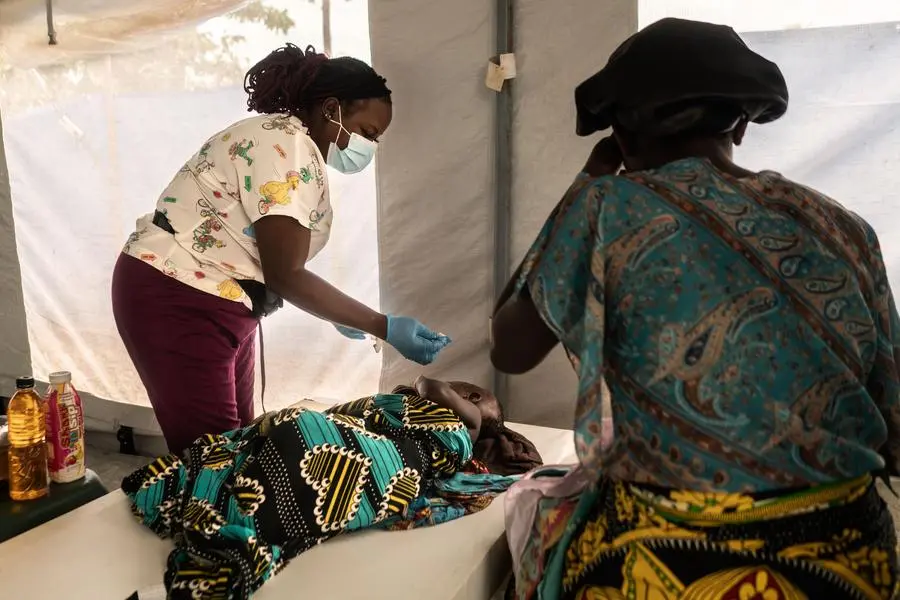PHOTO
Malnutrition is leaving children in Malawi vulnerable to the country's worst-ever cholera outbreak, the United Nations warned Tuesday as it appealed for more than $50 million to help combat the spread.
An estimated 4.8 million children -- one in two -- in the southeast African nation need humanitarian aid, the UN children's agency UNICEF said.
By the end of March, more than 213,000 children aged under five are expected to be acutely malnourished, with more than 62,000 expected to be severely malnourished, said Rudolf Schwenk, UNICEF's representative in Malawi.
"As a severely malnourished child is 11 times more likely to die from cholera than a well-nourished child, a bout of cholera may amount to a death sentence for thousands of children in Malawi," he told reporters in Geneva via video-link.
Malawi is experiencing the deadliest cholera epidemic in its recorded history, combined with a polio outbreak and ongoing Covid-19 infections.
The first case of cholera was documented just over a year ago, and the disease has since spread to all 29 districts.
More than 50,000 people have been affected and more than 1,500 have died as of March 2. Children comprise more than 12,000 of the cases and 197 of the fatalities, said Schwenk.
As the 2023 rainy season reaches its peak in the country, UNICEF warned that without immediate action, the outbreak will worsen.
The agency has provided life-saving medication, safe water and cholera prevention and treatment information, but is now running short of funding and supplies and is appealing for $52.4 million.
"To prevent future outbreaks of cholera, we have to support the country with significant investments in health, water and sanitation infrastructure," said Schwenk.
Cholera is an acute water-borne diarrhoeal disease that can kill the most vulnerable patients within hours if left untreated.
Since the outbreak began, Malawi has carried out two large vaccination campaigns, but due to limited supplies, has offered just one instead of the usually recommended two doses of oral vaccine.





















